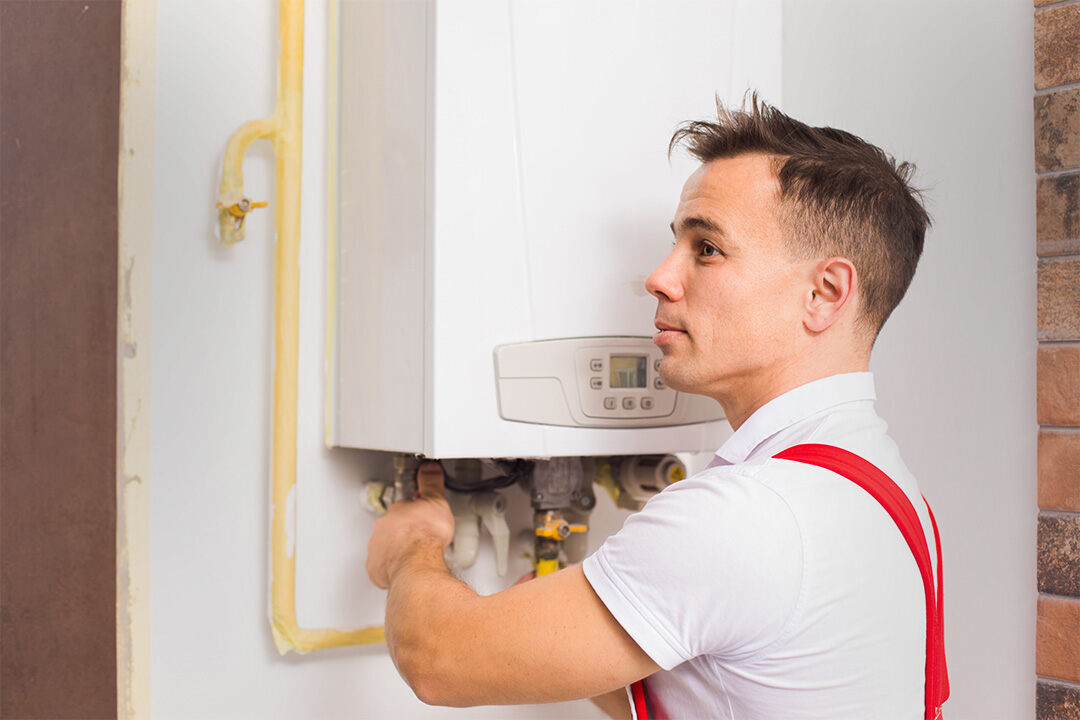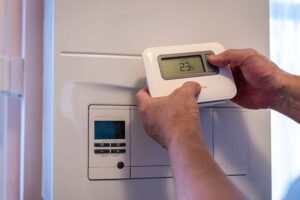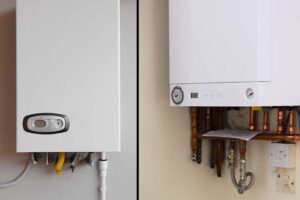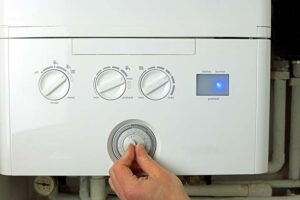If you live in the UK, you may have heard of the boiler system. It’s part of the Energy Company Obligation (ECO4) grant, which helps people get new boilers more efficiently. This support system can help save money on heating and is good for the environment by reducing carbon emissions.
The free boiler scheme is part of the government’s plan to make homes more energy efficient and help low-income families. It provides free and efficient boilers to save people energy and money.
Let’s discuss the what type of boiler to expect with boiler grant under the ECO4 scheme and understand more about them, especially the Combi boiler.
ECO4 Boiler Grants
ECO4 Boiler grants are government initiatives designed to assist homeowners in replacing their old, inefficient boilers with newer, more energy-efficient models. These grants aim to reduce carbon emissions and energy bills while improving household heating efficiency.
Types of Boilers
When it comes to boiler grants, there is only two types of boiler commonly offered:
Combi Boilers
Combi boilers, short for combination boilers, are popular for their compact size and efficiency. A combi boiler is used for heating and domestic hot water as needed. This is achieved by heating water directly from the power supply, eliminating the need for an additional tank or hot tub.
And to save space, you will have heat and hot water when you want it. However, without steam storage in the cylinder, combi boilers are limited in terms of the demand they can meet. So, if you live in a property where a lot of hot water is required in many bathrooms, a system boiler would be ideal.
Pros
- Space savings: Not needing separate storage tanks means more space in your home.
- Efficiency: Only the water you use is heated, saving energy.
- Unlimited Hot Water: You get hot water whenever you need it.
- Simple Installation: Easy and quick to install as compared to other types.
Cons
- Pressure dependence: If you have more than one tap running at the same time, the water pressure can drop.
- Not Ideal for Large Homes: Quite a few people don’t think that Combi boilers are the best thing for large homes with several bathrooms.
- Installation Cost: If the grant doesn’t apply to you, the installation cost may be steep even though the boiler functions well.
System Boilers
These boilers need hot water storage and take up a lot of space. They’re often better suited to houses that require a lot of hot water every day, for instance, those with more than one bathroom, but they aren’t as efficient as Combi boilers because they take a lot of time to heat up when you need it instantly.
What Factors to Consider Combi And System Boiler for a Grant
To select the right boiler, you need to think about the things that determine how well it works, such as its efficiency rating, operational performance, monthly utility bills, and replacement expenditure in future years. Key considerations include:
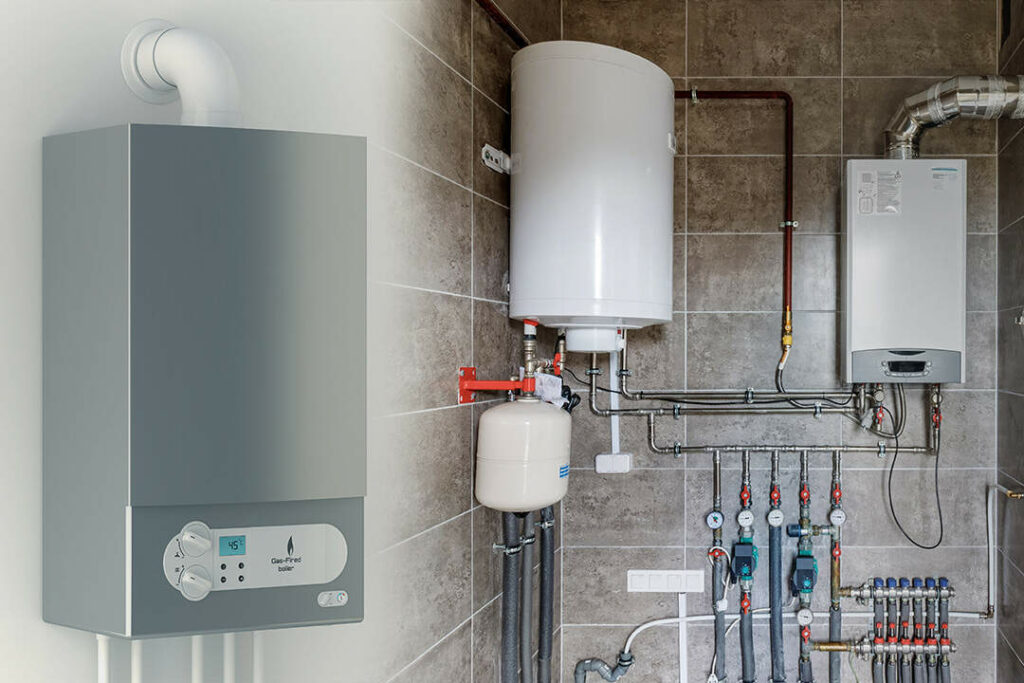
Energy Efficiency Ratings
Maximise savings on energy bills and minimise environmental impact by using a combi boiler with high energy efficiency ratings, such as A-rated boilers.
Boiler Size and Capacity
Make sure that the boiler’s size and power match your home’s heating and hot water needs so that you do not waste energy and optimise its performance.
Long-Term Costs and Maintenance
To guarantee affordability and dependability over any boiler’s lifetime, one must consider conservation expenses and assurance given.
Reduced Carbon Footprint
Because of their efficiency, combi boilers help reduce your home’s carbon footprint. This is good for the environment.
Get the output rating right
The size of a boiler depicts its heating power output or, in other words, its output rating. Any heating device should be recommended in kilowatts since it must align with your household’s requirements. This is because it is not advisable for one to go for the ‘the more powerful, the better’ misconception because it will end up increasing your heating bills.
Why Not Regular Boilers?
Typically, System and Regular boilers are not offered under ECO4 systems for several reasons:
Regular Boilers often referred to as traditional or conventional boilers, they require a hot water cylinder and cold water storage tank. They are less useful for the efficiency and space-saving aim of the ECO4 scheme, as they are more spacious and less efficient.
Eligibility for Boiler Grants
Boiler grants are often targeted at homeowners or tenants in receipt of certain benefits, such as:
- Income-based Job seeker’s Allowance (JSA)
- Income-related Employment & Support Allowance (ESA)
- Income Support Allowance (ISA)
- Working Tax Credit (WTC)
- Child Tax Credit (CTC)
- Universal Credit (UC)
- Pension Guarantee Credit
- Pension Savings Credit
- Child Benefit
- Housing Benefit
As well as
- Age of boiler(your boiler must be installed before 2005)
- Annually low-income criteria
- EPC rating should be Below D or D
How to Apply for a Boiler Grant
In order to qualify for a boiler grant, applicants will have to go through different stages, such as checking if they qualify and having their needs evaluated before finally getting approved by appropriate bodies. If one wants to be considered for this scheme, then it would be best if they did so through those installers who are recognised as genuine since they are also under the supervision of state institutions, thus making sure that everything is done according to law.
Process of Getting a Boiler Grant
The installation process starts with an assessment of your current heating system and home layout and is scheduled once you are approved for a boiler grant. Qualified engineers will conduct surveys to determine the most suitable boiler type and ensure compliance with safety and efficiency standards.
Assessment and Survey
Engineers will assess your home’s heating requirements and recommend the best boiler type and size based on factors such as property size, insulation levels, and hot water usage patterns.
Installation Process
Expert installer will carry out the fitting of your brand new boiler to make certain all the proper attachments and safety considerations are in place. Also, they will advise on how to operate and take good care of it in order to raise efficiency and durability.
Post-Installation Checks
After installation, engineers will conduct tests to verify the boiler’s performance and ensure it meets regulatory standards for energy efficiency and safety. They may also provide information on warranty coverage and ongoing support.
Conclusion
By going through what type of boiler to expect with boiler grant and reflecting upon critical aspects, we can come up with an enlightened choice that, in turn, boosts consumption as well as subsequent energy costs. One needs to know the following: the home’s heating requirements, grant availability, and how an upgrade on this device would be beneficial to you. In case you need further details about this topic, consult your closest energy provider or builder registered by the government and operating locally.
Frequently Asked Questions
Boiler grants can cover the cost of a new boiler or partially cover it. The level to which they cater for this expense depends on who is entitled and the eligibility criteria.
Homeowners, tenants who receive some benefits or they live in homes with older heating systems normally have different eligibility criteria.
Usually, grants for your boiler cater for a combi, regular or system boiler installations contingent upon the heating essentials of your residence.
Submit all the necessary paperwork and check your eligibility status when applying via licensed installers or schemes approved by the government.


